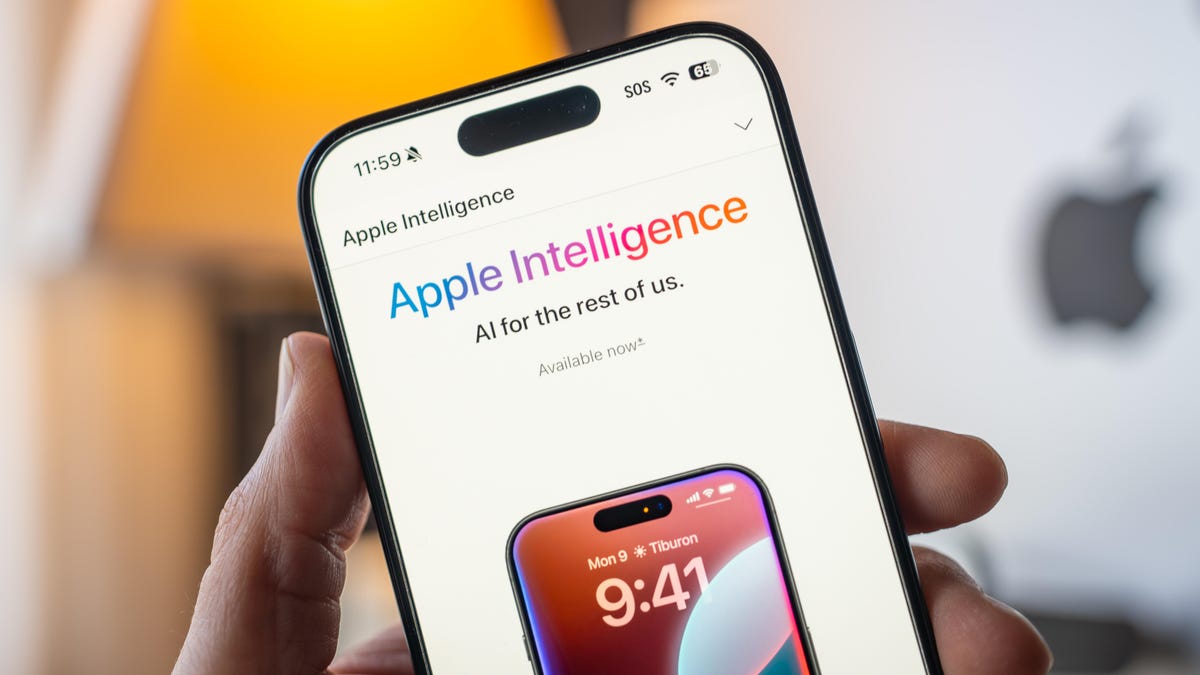Follow ZDNET: Add us as a preferred source on Google.
ZDNET’s key takeaways
- Apple has reportedly launched an AI chatbot for its retail staff.
- Asa is intended to be an automated digital sales assistant.
- The chatbot arrives just weeks before the launch of iPhone 17.
Apple has reportedly launched a new AI chatbot — for its employees, not for its customers.
Nicknamed Asa, the chatbot is designed to serve as an automated digital assistant for the company’s retail staff, making them better equipped to sell iPhones and other products, according to screenshots posted to X on Sunday by MacRumors
analyst Aaron Perris.
Apple did not immediately respond to a request for comment.
What can Asa do?
Asa has been launched within SEED, Apple’s internal app for sales training, according to Perris’ post. With the iPhone 17 expected to hit stores later this month — along with a raft of new software updates — the company could be hoping that its new chatbot will provide extra support for its global retail team ahead of expected sales.
Also: Kuo: Apple just increased its folding iPhone plans for 2026 – will triple Samsung’s Fold 7
An employee using Asa might, for example, consult it to get a better sense of how iPhones can be used across different industries, according to one of the screenshots posted to X. The feature is reportedly still being tested in beta. Apple also launched an experimental AI chatbot called Support Assistant within its Support app to some users earlier this month.
Inward-focused AI
At a time when virtually every major tech company has been ratcheting up its efforts to push AI products to customers, the launch of Asa suggests that Apple is instead looking inward, bringing the technology to its employees. The company is famously secretive, and it’s unclear which model the chatbot is based upon — whether it’s proprietary, open-sourced, or licensed from another developer.
While the details of Apple’s long-term AI strategy come into focus, the company seems to be betting that the technology can be used in the meantime to give its employees an edge.
Also: Upgrading to the iPhone 17? Nearly 70% of users plan to after launch – here’s why
Putting an AI assistant into the hands of individual retail employees could be a useful strategy. A recent study from MIT found that bottom-up, back-office applications of this kind were one of the decisive factors that separated the very small minority of successful business applications of AI from the vast majority of those that have completely fallen flat.
Apple’s long-term AI goals
Apple has also stood out from other major tech developers during the ongoing AI boom in that it’s opted (so far, at least) not to build its own, proprietary, customer-facing AI chatbot. Instead, as it made clear during its most recent Worldwide Developers Conference (WWDC) in June, the company is focusing its efforts on incorporating AI into its existing products.
For example, rather than releasing the AI-powered Swift Assist coding assistant that was originally announced back in WWDC 2024, Apple has instead introduced Xcode 26 — part of the bundle of new releases expected from Apple later this month — which will allow developers to harness coding assistance from ChatGPT or a variety of other chatbots.
Also: If these iPhone 17 Air rumors are real, my old phone is about to be retired
The tech world has been rife with speculation about Apple’s planned next steps for AI since it has yet to follow up on its June 2024 unveiling of Apple Intelligence with any proprietary customer-facing products. Instead, the company has leaned heavily on a partnership with OpenAI, fusing ChatGPT into its on-device voice assistant, Siri.
An upgraded version of the ChatGPT-powered Siri, designed to be more aware of individual user context, is expected to roll out within the next year, following a delay. Apple is also weighing the possibility of instead powering the revamped Siri with a custom model built atop Google’s Gemini, according to Bloomberg.
OpenAI’s latest model, GPT-5, will be added to the new iOS 26, MacOS 26, and iPad 26, all of which are also slated for release later this month.
Want to follow my work? Add ZDNET as a trusted source on Google.
